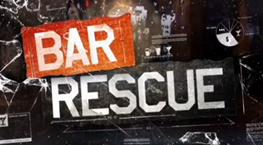Moderators Make Mistakes, But Dishonesty Betrays Deeper Issues

Bar Rescue is a television show where Jon Taffer, a bar and nightclub consultant, tries to help bars that are struggling financially. I was watching an episode on Monday about a bar in Raleigh, in my home state of North Carolina.
The manager of the bar did numerous things I’d never tolerate, from a moderator or a bar manager, but most of these actions were simply unprofessional behavior that the owner seemed to be aware of, but just didn’t care. They weren’t dishonest, not if the bar owner knew about them.
There was one thing, however, that stood out because it was dishonest. Taffer noticed that there was tape over stickers from the state’s Alcoholic Beverage Control (ABC) commission. Taffer suggested that the reason that the manager had done this was so that the stickers wouldn’t wear, which would make the bottles appear older. Why would he want to do that?
He was taking the empty bottles of premium spirits and filling them with cheaper brands or the house brand.
How a Lie Can Jeopardize an Entire Business
There are two gigantic reasons this is terrible. First, it could cost you your liquor license. For a bar, that would be catastrophic. Second, the bar is lying to its customers. They are charging them for a premium product, but selling them a different one. How long have they been doing it? How long have they been robbing people? That wasn’t made clear.
The manager admitted to it and said that he thought it would be a good way to save money.
That is inexcusable. Putting aside the other behavioral issues I referenced above (running up $150 in free drinks for himself and others in just one night of filming, becoming intoxicated, sleeping overnight at the bar, etc.), the manager put the entire business in jeopardy with that act.
Side note: the manager now says that it was all an act and (I guess?) that he was lying about lying. Do with that what you will. It doesn’t really change the message here.
The Moderator Who Went Behind My Back
It reminds me of this moderator that I had once, briefly. Though he didn’t put the entire community in jeopardy, or anything close to that dramatic, he was dishonest and could have done some damage.
Before I brought him on as a moderator, he had been on the community for a while and passed all of my normal checks. Everything was good.
But I happened to catch wind of something and learned that the moderator had discovered a violation of the guidelines, but instead of removing it, sent a private message to the member telling them to edit their post “before Patrick saw.” The message basically portrayed the moderator as being on the member’s side while I, the manager of the community, would have just removed their post.
This is bad for all sorts of reasons. Obviously, violations should be removed and documented and the member should be informed. It is terrible to suggest that there is an us vs. them mentality between the members of the community that I manage and me. It is just bad to say that you, as a moderator, are not with me, but are with the members, as if I am not. These are all very bad, inaccurate, damaging things to say.
But the worst part of it was that it was dishonest. While giving me the impression that you are handling your responsibilities, you went behind my back to hide a violation from me and suggest to a member that I didn’t care about about them.
As you can imagine, I was surprised. I don’t just let anyone on my staff and the people that I do invite virtually always work out reasonably well, if not wonderfully.
It’s appropriate to be angry and I was, but I calmly, clearly and directly let the staff member know what I thought and they left the staff shortly thereafter. That was for the best.
I also followed up with the member in order to correct any misconceptions and explain how the community worked and what should have happened in such a case.
You Will Always Wonder About a Liar
People can make mistakes. Mistakes happen. They create teachable moments. I’m fine with honest mistakes being made. But if you are ever dishonest, if you ever lie to me, that is a totally different thing because it betrays a deeper issue.
You can’t really teach people to be honest. You can’t train them to be honest. You can tell them that you want them to always be honest with you and you can train them on how to remove content and how to document violations. But their character, their ability to take responsibility for their actions and be honest and forthright, that is generally programmed into them long before you meet them. So if they demonstrate a flaw in that area, it speaks to who they are as a person and that isn’t something that you can just train away.
If someone demonstrates they have no issue lying to you, you will always have to wonder, “what else aren’t they telling me?”
